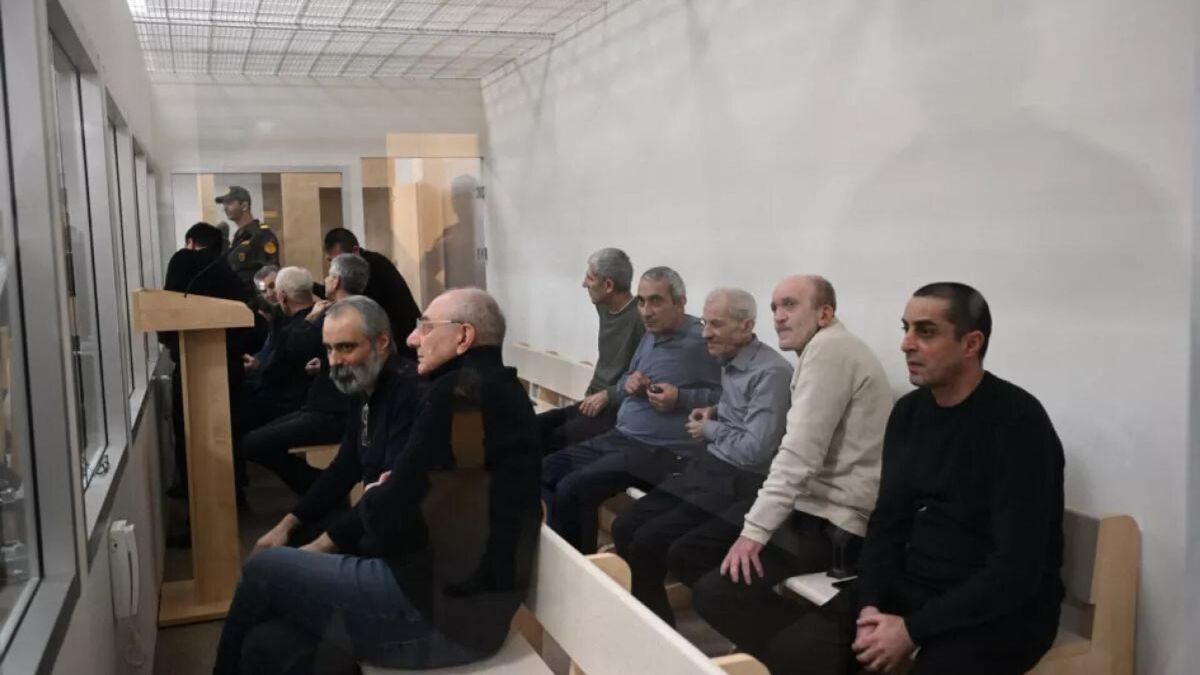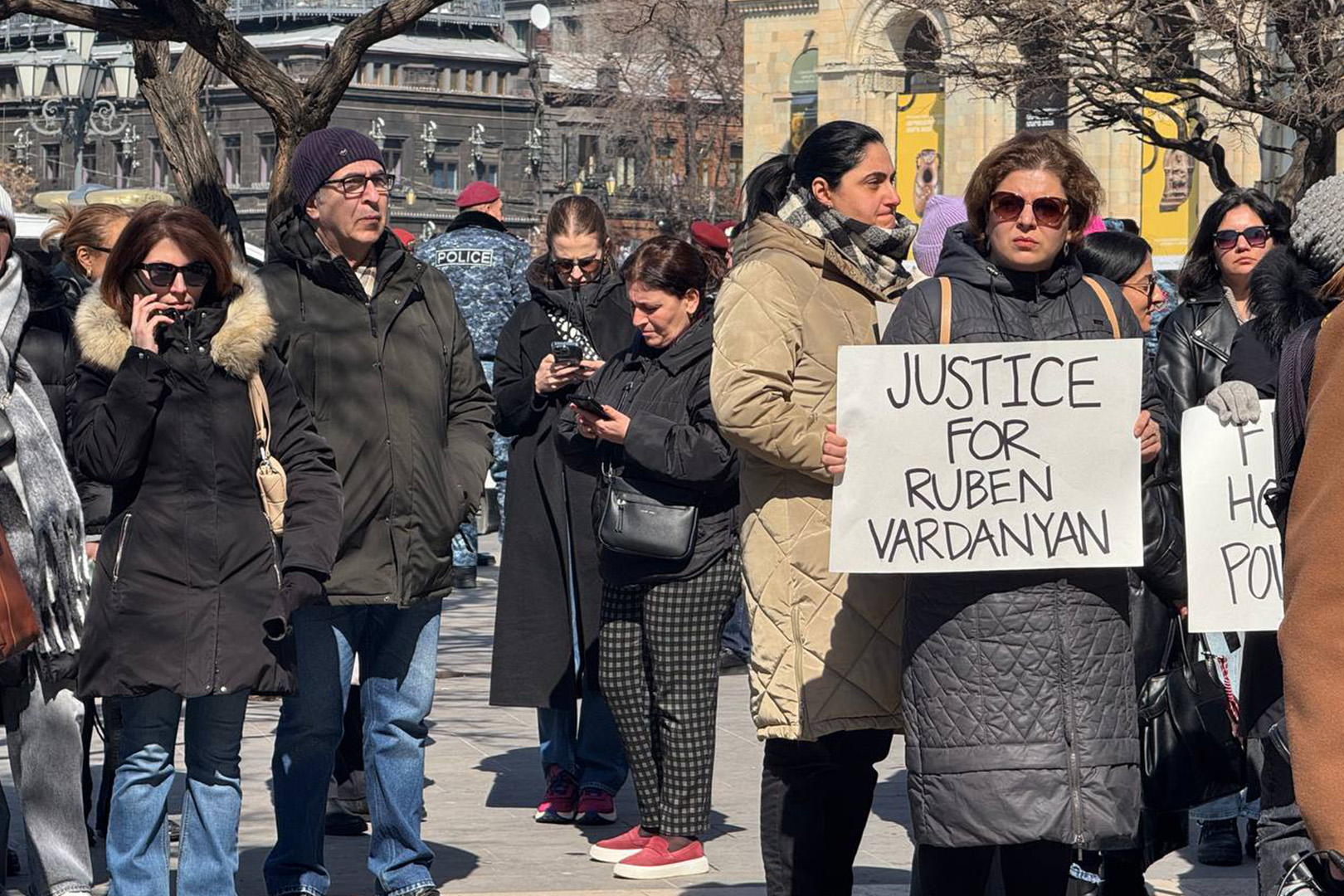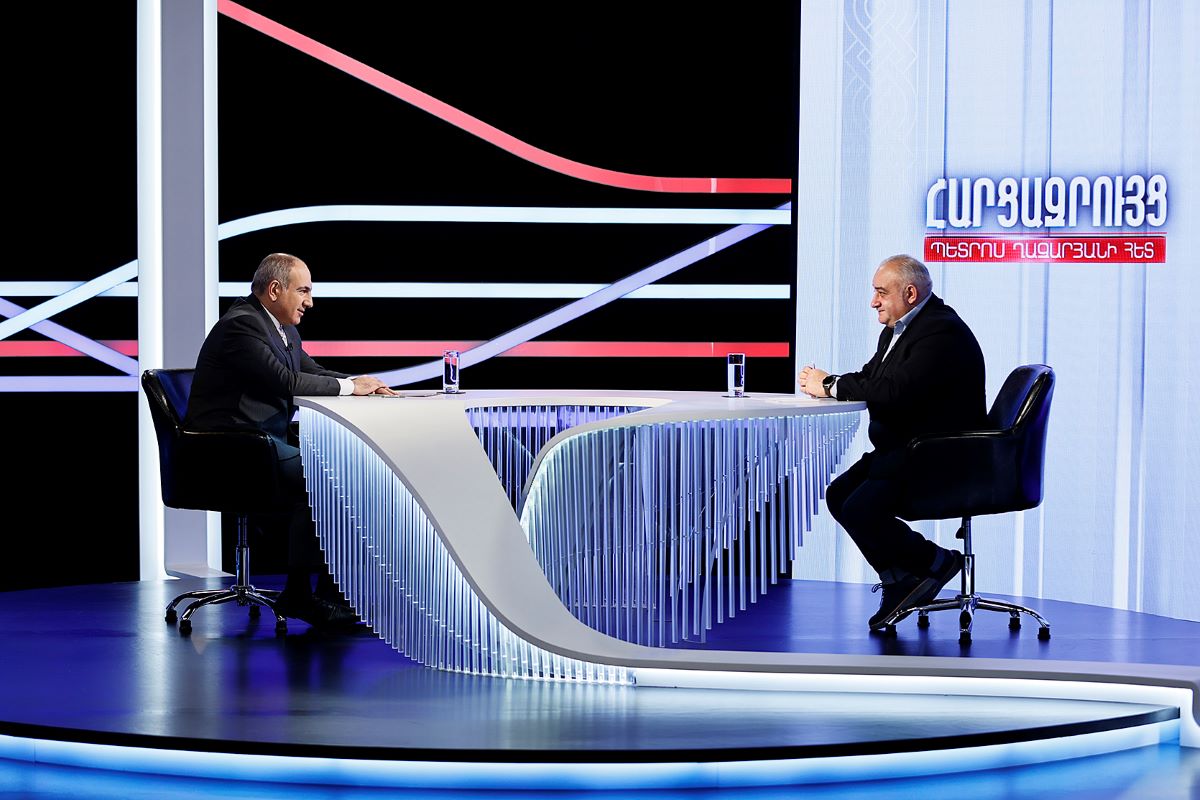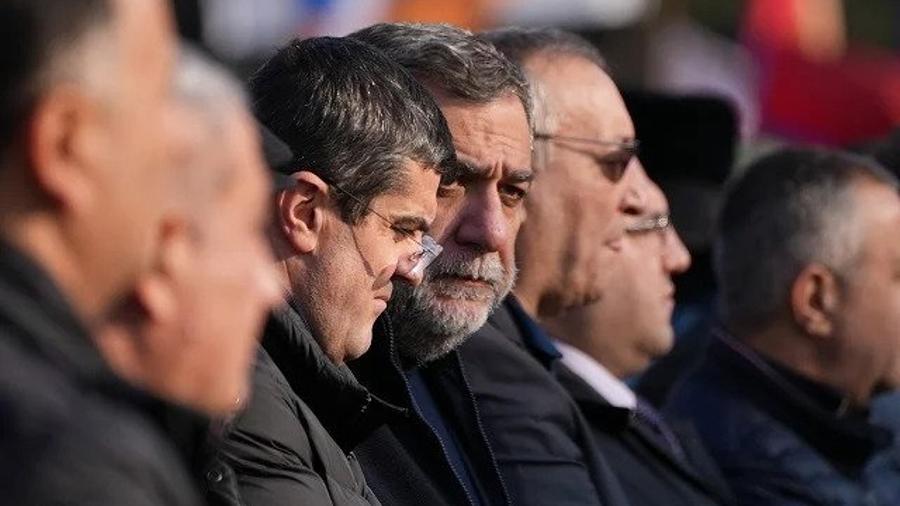‘The last hope for Armenian prisoners is dying’: Red Cross office in Baku to close
What awaits Armenian prisoners: Red Cross office in Baku to close
In Armenia, there is discussion about reports that the International Committee of the Red Cross will cease operations in Azerbaijan, as it was the only independent organization visiting Armenian prisoners held in Baku.
The ICRC’s Baku office is set to close soon at the request of the country’s authorities. Human rights defender Siranush Sahakyan warned that after this, “Armenian captives will be left in complete isolation in Baku’s prison.”
Azerbaijan officially acknowledges holding 23 Armenian detainees, but Armenian human rights defenders say the real number is much higher — as many as 80.
For several months, the Baku military court has been hearing the cases of 16 Armenian prisoners. Independent media and international observers are barred from the proceedings. Among the defendants are former military and political leaders of the self-proclaimed Nagorno-Karabakh Republic. They have been held in a Baku prison for nearly two years, following their arrest during the hostilities on 19 September 2023.
The detainees are represented in court by public defenders appointed by the Azerbaijani state. Authorities have not allowed independent lawyers to join the cases. The family of detainee Ruben Vardanyan hired international human rights lawyer Jared Genser — but he has been barred from taking part in the trial. Armenian human rights defenders say the hearings in Baku are a “staged trial based on fabricated charges,” and that the rights of all prisoners are being violated.
- Opinion: “Baku alarmed by Armenia’s legal action amid potential consequences for Aliyev”
- Armenia drops search for Azerbaijani who beheaded elderly Armenian man — but why?
- ‘Freeing Armenian prisoners is a priority for Trump administration’ – Jared Genser
- Baku urges Yerevan to cooperate and extradite ‘criminals’: Who is being referred to?
‘We will no longer visit the prisoners’
The International Committee of the Red Cross (ICRC) has informed families of Armenian detainees that it will no longer be able to visit them. Until now, the organisation had been the only channel through which relatives received updates on prisoners’ health, made video calls, and sent clothing and hygiene items.
“They told all of us — the families of the prisoners — that the Red Cross will never visit them again, that they are no longer involved,” a relative of a detainee told Azatutyun radio (Radio Free Europe/Radio Liberty). “With the closure of the Baku office, our last hope — and theirs — is fading. The ICRC was the only link between them and their families, the only ray of light. Now that light has been shut off.”
Contact between the prisoners and their families is now handled by Azerbaijani state institutions, limited to occasional phone calls. There is no guarantee those calls will continue.
Last visit took place in June
Staff from the International Committee of the Red Cross (ICRC) visited Armenian detainees in June, according to Azerbaijan’s APA news agency, citing an official statement from the organisation.
“There were individual meetings, opportunities were provided to contact families, and parcels sent by relatives were delivered,” the statement said.
The Red Cross did not specify how many prisoners were visited or which detainees were seen.
‘We are continuing dialogue with the Azerbaijani authorities’
It remains unclear when exactly the ICRC’s Baku office will close. Zara Amatuni, the ICRC’s communications manager in Armenia, said the organisation will issue an official statement in due course.
It is also unclear whether ICRC staff will be allowed to visit Armenian detainees once the office shuts down.
“Dialogue with the Azerbaijani authorities on this issue is ongoing, but there are no concrete details about the format,” Amatuni said.
She added that other issues are also being discussed — including the situation of detainees, other individuals in custody, and those who are missing.
PM says prisoner issue is a priority — families want results
Prime minister Nikol Pashinyan has insisted that the issue of Armenian prisoners is raised at every meeting with Azerbaijan.
“There is not a single negotiation or conversation between Armenia and Azerbaijan where the prisoner issue is not given the necessary attention,” he said at his most recent press conference.
But for the families of the detainees, these assurances are no longer enough. A family member told reporters that it’s impossible to live in limbo for years:
“You can wait a month, two, maybe three… but you can’t keep waiting for years. You can’t keep saying ‘we’re working on it’ without showing any results — even small ones.”
Their message to both the authorities and the international community remains the same: “Help bring the prisoners home.”
The families are still hoping for another chance to raise their concerns directly with the prime minister.
Comment
Human rights lawyer Siranush Sahakyan said:
“We have always raised concerns about the isolation of prisoners, which is prohibited under international humanitarian law. Our position has been based on the lack of access for anti-torture bodies and the fact that independent foreign lawyers were not allowed to meet with their clients — which is also a form of isolation. Family members have never been allowed to visit their relatives.
Until now, we noted that this isolation was at least partially broken by the presence of the Red Cross, an international organisation. But the situation has now worsened.
Azerbaijan is deliberately pursuing a policy of incommunicado detention — holding prisoners in isolation, without contact. In the past, we spoke of specific instances of torture. Now we are also saying that there is a state policy of shielding, concealing, and covering up these crimes.
Baku has created what it calls a Committee Against Torture. There is no doubt this body will lack independence and will not speak the truth. It is merely a token measure. Azerbaijan cannot offer a reasonable explanation to the international community for why it holds Armenians in complete isolation.
In its defense, it is trying to promote the idea that this committee is active. It will attempt to convince others that Armenians are not being held in total isolation, that a domestic body is carrying out visits, and that it has a mandate similar to an international institution.”























